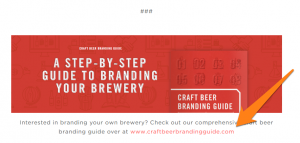Why Google Organic Traffic To Websites Continues To Fall
Nearly half of all ecommerce-related searches on Google never result in consumers clicking through to a retail or other website, and retailers acknowledge that they do not see the same volume of traffic from organic search as before the COVID-19 pandemic, according to a new study by Searchmetrics.
Searchmetrics analyzed clickstream data in the U.S. for 1 million typical ecommerce search queries as part of a bigger study covering travel, health care, and media verticals. The study spanned between October and December 2019. Around 5,000 keywords were analyzed for each vertical.
Only 32% of ecommerce searches resulted in organic clicks, while 20% triggered paid clicks either through search ads or Product Listing Ads (PLAs). The remaining 48% of searches produced no clicks at all, so they did not generate traffic to the retail sites.
Google might disagree, but Searchmetrics attributes the high rate of no-click activity to two things — either searchers not finding what they look for after an initial query and then searching again and refining the question or the increasing number of search engine results page (SERP) features such as Featured Snippets, Direct Answers, Knowledge Panels, People, Ask, and Video Carousels.
Tyson Stockton, VP of client services at Searchmetrics, believes marketers need to understand the different types of SERP features and how they compete in search results.
He suggests focusing on keywords that might have slightly low search volume but a high organic click-through rate to capture more traffic than just focusing on the keywords that have the highest search volume.
Google found other ways to answer queries without sending the searcher to the company or brand’s website.
Featured Snippets, for example, provides short answers to search queries in a widget box that serves up above the organic search results displaying key text and images from a relevant web result that answers the searcher’s question.
Direct Answer boxes serve information in the SERPs in response to fact-based search queries. The information comes from Google’s Knowledge Graph, a knowledge base of information about things, people and places that has been pulled together from trusted sources such as Wikipedia and other high quality websites. Microsoft Bing offers the same type of information. Google Direct Answers does not include links to website where content originates.
Searchmetrics also found that in the media vertical, 63% of relevant search queries produce no organic clicks. This deprives publishers of potential revenue, which becomes a challenge and increases click-bait headlines.
In the health-care area, no-click activity accounted for 68% of all searches, the highest of all the verticals Searchmetrics analyzed. For the travel industry, no-click searches were about 27%.
(50)
Report Post




